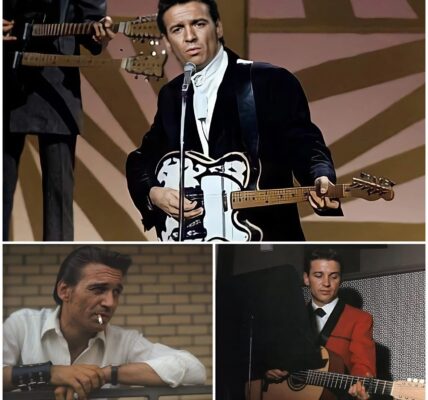Waylon Jennings’ “Singer of Sad Songs”: The Haunting Track That Revealed the Soul of Outlaw Country
Waylon Jennings’ “Singer of Sad Songs”: The Haunting Track That Revealed the Soul of Outlaw Country
Long before Waylon Jennings became the undisputed king of Outlaw Country, he was a restless artist pushing against Nashville’s rigid rules, searching for his own voice. That journey toward creative freedom found a striking expression in his 1970 album Singer of Sad Songs, particularly its haunting title track—a quiet rebellion cloaked in sorrow, honesty, and poetic depth.

At a time when country music was dominated by polished production and predictable storytelling, Jennings’ “Singer of Sad Songs” was already a departure from the expected. Penned by Alex Zanetis, the song tells the story of a performer drawn to melancholy, someone who finds purpose not in applause but in connecting with the emotions of others. “They call me a singer of sad songs,” Jennings intones with his deep, knowing voice, “because I know so many.” There is no glitz, no barroom bravado—just the weight of lived experience expressed through understated instrumentation and a mood that oscillates between quiet defiance and tender resignation.

What makes this track so pivotal in Jennings’ career is how clearly it foreshadows the creative awakening that would soon reshape country music. Within a few years, Jennings would fully break from the Nashville mold with albums like Honky Tonk Heroes and Dreaming My Dreams, pioneering a movement where artists reclaimed control over their sound and story. Yet even in 1970, “Singer of Sad Songs” signals that yearning for authenticity—a refusal to mask life’s struggles and a commitment to emotional truth.

More than just a song, “Singer of Sad Songs” serves as one of Jennings’ most personal statements. It reflects an artist who sings not for fame, radio play, or commercial success, but for the listeners who find comfort in music that understands them. It is a tribute to the power of songs to hold space for sorrow, to transform private pain into shared human experience. Jennings’ storytelling here reminds us that the best music resonates because it mirrors real life, carrying with it the truths we sometimes cannot voice ourselves.
For both longtime fans and newcomers exploring his catalog, “Singer of Sad Songs” is more than a track—it is an invitation. An invitation to listen closely, feel deeply, and recognize that country music, at its best, is about soul, honesty, and connection. Waylon Jennings didn’t just sing sad songs; he gave them meaning, turning personal reflection into a shared human story that continues to echo decades later.




